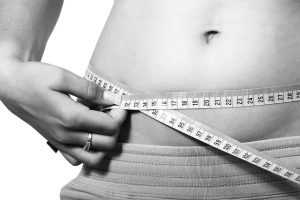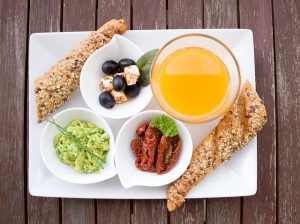
With today’s fast-paced world being full of distractions, materialism, and ever-growing consumerism, it’s easy to find ourselves caught in the tangle of wanting more. However, more doesn’t always equate to better. The solution might just lie in the art of minimalism—a simple, less-is-more approach to life that has the power to declutter not only our surroundings but our minds and souls. In this article, we explore the multifaceted benefits of embracing minimalism for a healthier, happier you.
Understanding Minimalism
Minimalism is much more than a design aesthetic; it’s a lifestyle choice and a philosophy that encourages you to focus on what’s essential. It’s about living with intentionality, where each possession, activity, and relationship is there because it adds value to your life, not because it adheres to societal norms or blind accumulation.
The Psychological Benefits of Minimalism
Adopting a minimalist lifestyle can significantly impact mental well-being. By reducing the number of possessions and commitments, you alleviate stress associated with clutter and overcommitment. Additionally, minimalism often steers you towards mindful consumption, resulting in a sense of freedom and peace.
The Freedom of Less
When you own fewer items, you have less to clean, maintain, and worry about. This creates a liberating feeling of lightness and frees up space in your home and mind. It can help reduce anxiety and depression by decreasing the stimuli that overwhelm our mental processing capacity. Moreover, having fewer, more meaningful possessions can stoke a sense of gratitude and contentment.
Minimalism and Focus
Through minimalism, you can enhance your ability to focus. With fewer distractions and less time spent on upkeep, you have more time to spend on activities that truly matter to you, whether that’s personal hobbies, career advancement, or nurturing relationships. This leads to improved productivity and satisfaction with life.
Physical Health Perks of Minimalism
Living minimally extends its benefits to physical health, too. A decluttered space can reduce hazards and allergens that cause physical harm. Moreover, with a clearer environment and mind, you may find more time and energy for self-care routines like exercise, meditation, and cooking wholesome meals.
The Impact of Minimalism on Diet
A minimalist approach to consumption can significantly improve your diet. By reducing the number of processed, pre-packaged foods and instead focusing on fresh, whole ingredients, you provide your body with higher-quality nutrients. Simplicity in eating often translates to meals that are both nutritious and satisfying, leading to better overall health.
How Decluttering Improves Sleep
A minimalist bedroom with fewer distractions promotes a better sleep environment. Reducing electronics, clutter, and work-related items can help minimize insomnia-triggering stress, allowing for a restful night which is essential for physical and mental recovery.
Minimalism and Relationships
By choosing quality over quantity, minimalism nurtures deeper connections. When you’re not overly focused on material possessions or an overcrowded social schedule, you can devote more time and attention to cultivating meaningful relationships with family and friends, thereby enriching your emotional life.
Fostering Deep Connections
Minimalism can lead to less time spent on superficial interactions, shifting the focus to fostering deeper, more intimate relationships. Removing unnecessary possessions can also lower the envy and competition often sparked by material comparisons, leading to more authentic and supportive relationships.
Economic Advantages of Minimalism
Embracing minimalism can have profound effects on your financial health. By purchasing fewer, higher-quality items, you eliminate wasteful spending. This mindful approach to consumption not only saves money in the short term but also encourages investments in items that provide long-term value and satisfaction.
Reducing Financial Stress
Living with less means fewer financial obligations, like smaller housing or fewer financed purchases. This lifestyle naturally leads to a reduction in debt and financial stress, and it allows more freedom to invest in experiences or savings that contribute to your happiness and well-being.
Adopting a Minimalist Mindset
Starting the journey toward minimalism involves shifting your mindset before taking action. Here are practical steps to adopt this transformative lifestyle.
De-cluttering Your Space
Begin by evaluating your possessions and deciding what truly adds value. Go through each item methodically, asking yourself if it’s essential or if it brings joy to your life. Donate, sell, or recycle items that don’t make the cut.
Mindful Consumption
Before any new purchase, ask yourself if it’s necessary. Wait for a period before deciding, to avoid impulse buys, and consider the item’s lifespan and the value it will add to your life.
Setting Priorities
Reassess your commitments and prioritize activities that align with your goals and values. Learn to say no to things that do not serve your purpose or bring happiness.
Embracing Experiences Over Possessions
Focus on creating memories through experiences rather than acquiring possessions. Plan trips, take up new hobbies, or spend time with loved ones.
Overcoming Challenges
It’s important to acknowledge that transitioning to a minimalist lifestyle can come with challenges. Social pressure, the discomfort of change, and emotional attachments to items can all pose difficulties. Stay focused on the reasons why you chose this path and seek out support from like-minded communities.
Conclusion
Embracing minimalism may seem daunting at first, but its benefits to mental health, physical well-being, relationships, and economic stability are transformative. Remember, minimalism is not about deprivation; it’s about making room for more of what matters. By decluttering your life and honing in on what’s truly important, you can find balance, happiness, and a profound sense of fulfillment. It’s time to let go of the excess and embrace the joy of less for a healthier, happier you.







